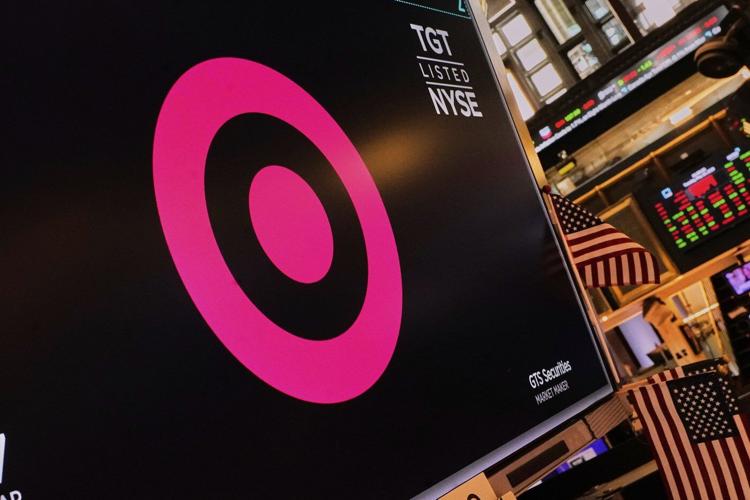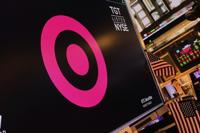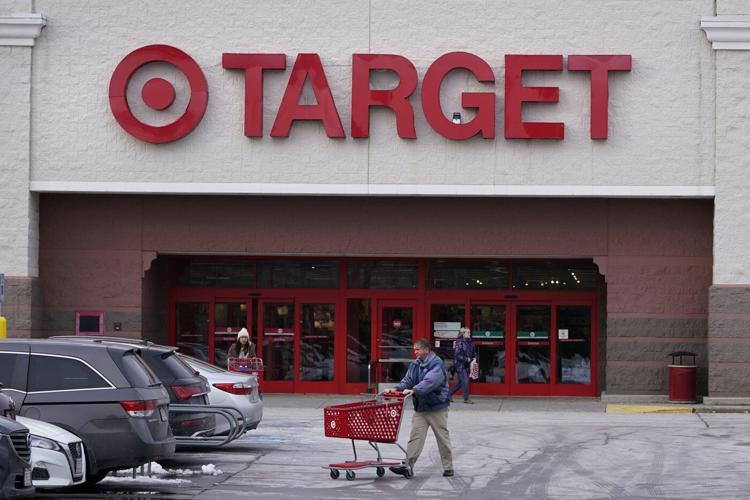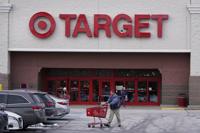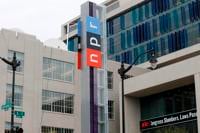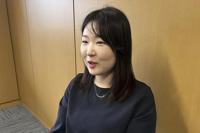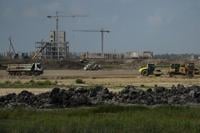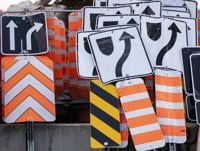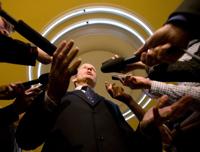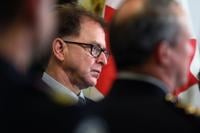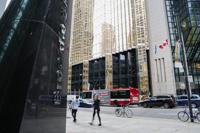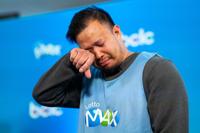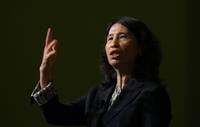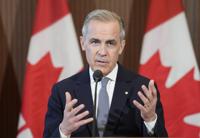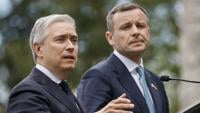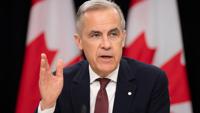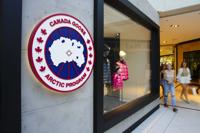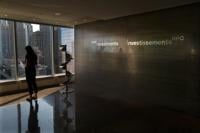NEW YORK (AP) — Sales at Target fell more than expected in the first quarter, and the retailer warned they will slip for all of 2025 year as its customers, worried over the impact of tariffs and the economy, pull back on spending.
Target also said that customer boycotts have also done some damage during the latest quarter. The company scaled back many diversity, equity and inclusion initiatives in January after they came under attack by conservative activists and the White House. Target's retreat created another backlash, with more customers angered by the retailer's reduction of LGBTQ+-themed merchandise for Pride Month in June of 2023.
Shares fell 3% before the opening bell Wednesday.
Sales fell 2.8% to $23.85 billion in the quarter, and that was short of the $24.23 billion Wall Street expected, according to FactSet. Sales are also down from the $24.53 billion the company reported during the same period last year.
Target cut its annual sales projections Wednesday. The company now expects a low-single digit decline for 2025 after projecting a 1% increase for sales in March.
It also forecast annual per-share earnings of $7 to $9, excluding gains from legal settlements this year.
For the year, analysts expect earnings per share of $8.34 on sales of $106.7 billion.
Comparable store sales, those from established stores and online channels, fell 3.8%. That includes a 5.7% drop in store sales and a 4.7% increase in online sales. That reverses a comparable store sales increase of 1.5% in the previous quarter.
The number of transactions across online and physical stores fell 2.4%, and the average ticket dropped 1.4%. Target said Tuesday that it couldn’t reliably estimate the individual impact of each of the factors that were hurting its business.
Target is setting up a new office to be led by Chief Operating Officer Michael Fiddelke would focus on making faster decisions to help accelerate sales growth. Current Chief Strategy and Growth Officer Christina Hennington will move into a strategic adviser role.
Target is also intensifying efforts to entice customers who are nervous about the economy and inflation. The retailer says it is offering 10,000 new items starting at $1 — with the majority under $20.
“I want to be clear,” Target CEO Brian Cornell told reporters on a call Tuesday. “We’re not satisfied with these results, so we’re moving with urgency to navigate through this period of volatility ... We’ve got to drive traffic back into our stores or visits to our site.”
Out of 35 merchandise categories including discretionary and essentials that the company tracks, it’s gaining or maintaining market share in only 15, the company said. The company cited that there were some market share gains in women’s swimwear, infant and toddler clothing, and active wear.
The latest results underscore Target's ongoing struggle in recent years to revive sales particularly in nonessentials like fashion and home furnishings as competition grows more fierce with the likes of Walmart and Amazon. Target's shares have fallen more than 37% in the past 52 weeks.
Target rival last week. The nation’s largest retailer said it's already raised prices on some items due to tariffs and that more price hikes are on the way this summer when the back-to-school shopping season goes into high gear. For example, car seats made in China that currently sell for $350 at Walmart will likely cost customers another $100, executives said.
Target didn’t offer specifics on tariffs’ impact on prices, but said that it was looking at different ways to offset those costs.
“We look at competition,” Cornell told reporters. “We make adjustments literally each and every week, so we’re constantly adjusting pricing. Some are going up. Some will be reduced.”
President Donald Trump’s threatened 145% import taxes on Chinese goods were reduced to 30% , with some of the higher tariffs on pause for 90 days.
Yet Americans were already pulling back on spending as they grow increasingly uneasy over the state of the U.S. economy. including toy manufacturer Mattel, toolmaker Stanley Black & Decker and consumer products giant Procter & Gamble have announced higher prices or plans to raise prices because of the trade war kicked of by the U.S.
Walmart was able to dodge some of the tariff damage other retailers are suffering because groceries account for about 60% of its U.S. business. Target is more reliant on discretionary items like clothing and accessories, with less than a quarter of its sales coming from groceries.
Target has reduced the number of its store-label products sourced from China to 30% now from 60% in 2017. The company is on its way to reducing that number to 25% by the end of next year, the company said. Target is shifting sourcing to Guatemala and Honduras and is looking to sourcing in the U.S.
Target is being pressured on other fronts as well.
The company in January said it would , including a program designed to help Black employees advance their careers and promote Black-owned businesses. Conservative activists and President Donald Trump in the federal government, schools, and at private businesses.
The pastor of a Georgia megachurch who led a nationwide boycott of Target stores in response .
The Rev. Jamal Bryant is seeking a reinvigorated commitment from Target on diversity, and he wants more support from Target for Black-owned banks and businesses.
Target earned $1.04 billion, or $2.27 per share, for the period ended May 3. That compares with $942 million, or $2.03 per share, in the year-ago period.
Target nationwide and employs more than 400,000 people.

